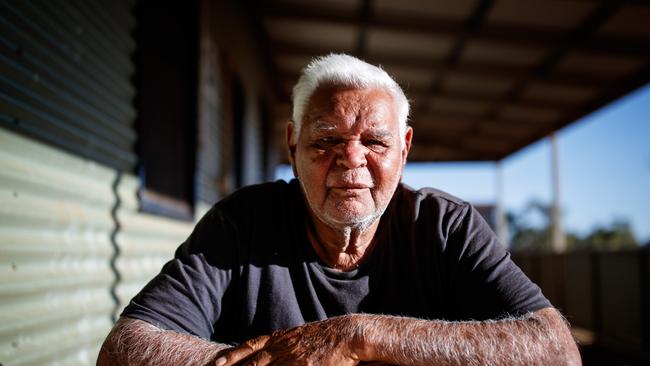Elder who voted ‘no’ elected to state voice
An Aboriginal elder who voted against the voice at the referendum last year has been elected to a legislated version in South Australia.

An Aboriginal elder who voted against a constitutionally enshrined national voice at the referendum last year has been elected to a legislated version of the voice in South Australia.
Donald Fraser, who was born on the Anangu Pitjantjatjara Yankunytjatjara Lands and grew up at the Presbyterian Ernabella Mission in the Musgrove Ranges, told The Australian on Monday he believes his home state should trial the voice before other states considered adopting it. Once state voices were working well, Mr Fraser said, a national voice could be the next step.
“I wasn’t in favour of the national one not yet,” he said. “Once we’ve learned here in South Australia we will pass it on to other states. Otherwise it will be too big to control it.”
The SA Electoral Commission published the first results of its count on Monday, declaring Mr Fraser one of seven successful candidates for the region called Far North. That region covers the town of Coober Pedy and the remote APY Lands where the late Indigenous leader Lowitja O’Donoghue was born.
Mr Fraser, who worked with O’Donoghue when they were both employed by the old Department of Aboriginal Affairs, said on Monday that he believed he was born in 1948 but had never been able to obtain a birth certificate.
He said economic development on the APY Lands must be one of the voice’s top priorities when it begins advising the Malinauskas government. Mr Fraser, who lives in the APY community of Pakutja, said government departments once helped his people run small enterprises that created jobs.
“People out here are on Centrelink since government took away the funding that created all those jobs,” he said.
“We used to earn $30 a week, which was a good wage at the time. There were a lot of jobs here but there is nothing now. It would be good to get together with the government, throw all the cards on the table and try to run that one.”
Mr Fraser said that running cattle could be a good option but there were plenty of other opportunities on the APY Lands.
“We are crying out for economic development,” he said.
“Once people earn a decent wage they can buy clothes and the expensive food they just cannot afford on Centrelink. Food is very expensive here.”
The first members of SA’s voice were declared on Monday as the Electoral Commission began what was expected to be a three-day count to decide who would sit on the three-tiered body. There are a total of 46 positions. The precise structure of the SA voice was established in legislation last year after consultations with Indigenous people across the state. The voice will be able to talk to the government and the parliament.’
In SA, the legislation creates six regions. The representatives elected from each region will form six local voices. Two members from each of these local voices – a man and a woman – will sit on the state voice. This means the state voice will have 12 members drawn from the local voices.




To join the conversation, please log in. Don't have an account? Register
Join the conversation, you are commenting as Logout